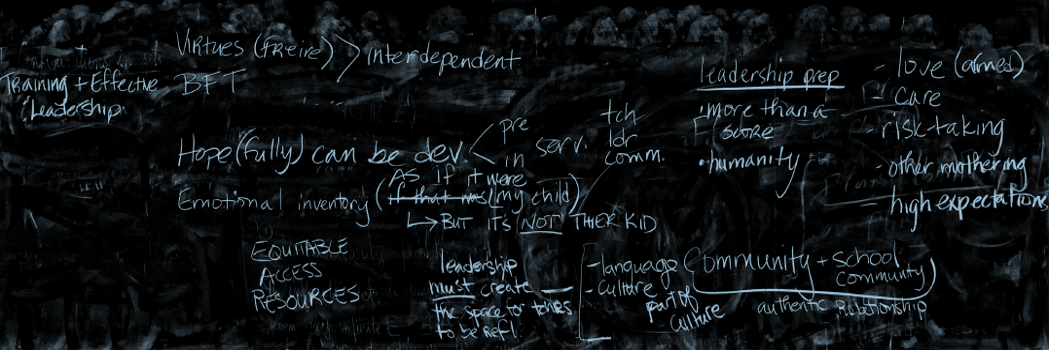I am so happy to jump into this conversation. Something that stood out for me was Rivera-McCutchin’s (2020) choice to place her positionality, under its own subheading, at the end of her methods section. I found this inspiring because it reminds the reader that there is no objective view of the research, ever. And hopefully, it reminds the reader to question the absence of this in so much research. In addition, it was interesting to see the choices that the author made in this section. I hope to learn more about this in class. How the author understands the value or power, in focusing on her stance (lens) in relation to the study, pointing to her world views, ways of being and knowing, the values and ethics that guide this work, and not the more typical detailing of identity that often dominates this section. This felt beautifully placed.
I appreciated Jane’s reflection on reciprocity. As this is something I’m highly interested in, something that was not explicitly discussed in the reading, and is often missing in research. It begs us to consider how questions of beneficence (Mangual Figueroa, 2014) that live within discussions of ethics may also be explored as an aspect of researcher care.
I was also drawn to concerns about the hierarchical structures that predominate in most schools. And it is unfortunate that due to IRB regulations, we don’t know how teachers, staff, families, and students perceived the situation. While Principal Johnson saw it as his responsibility to lead, inspire, and demand growth and excellence, I wonder who else in that school might have been interested to assume their own leadership roles. Who might have felt ready to take on curriculum work for example, and how this could have served as a source of support, strengthening the vision and mission for the school. Perhaps not achieving the consensus-based system that August described but increasing voice, power, and leadership amongst stakeholders.



